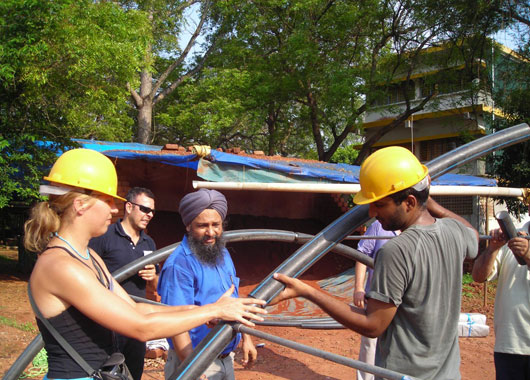
Shelter and Settlement Planning in Disasters
The overall objective of the course is to introduce non-specialist and specialist participants to settlement planning and shelter in disasters. It helps participants develop knowledge and skills to understand the impacts and related options for appropriate strategies and programmes for settling and sheltering populations affected by conflict and natural disasters. The breadth of emergency shelter and settlement options in disaster and conflicts are deliberated upon with case studies to understand strategies and approaches for responses in these diverse settings. The course covers a range of contextual settings from emergency programmes in planned and unplanned camps to host family support and longer term reconstruction and recovery projects. Disaster risk reduction in the shelter sector is incorporated as a cross cutting thematic. In this 6-day training participants also get to learn about the range of possible impacts of settlement and shelter on security, protection, community relations, public health, natural resource management and lifesaving sectors of emergency response such as WASH, Food and Nutrition and Health.
The course covers mechanisms and phases of coordination and response in this sector. Along with assessments, orientation is also provided on community approaches and participation as key components of sheltering practice. Relevant standards (Country specific, Sphere and UNHCR) and best practices in the application of these standards are also part of the course delivery. An overview of basic field survey and appropriate construction techniques, direct and contracted labour, project and site management, and the current range of materials for shelter provision in all phases of emergency response, including safe shelter and appropriate construction technologies in the context of disaster preparedness are also covered. There is also a practice based component to apply, view and learn about good shelter construction practices.

